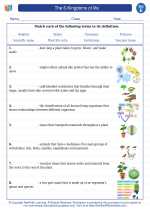Nutrient Cycling
Nutrient cycling is the movement and exchange of organic and inorganic matter back into the production of living organisms. This process involves the cycling of essential nutrients like carbon, nitrogen, phosphorus, and water through the biotic and abiotic components of an ecosystem.
Importance of Nutrient Cycling
Nutrient cycling is crucial for maintaining the balance of nutrients within an ecosystem. It ensures that essential nutrients are continuously recycled and made available to support the growth of plants and other organisms. This process also helps in the decomposition of organic matter, thereby contributing to soil fertility and overall ecosystem health.
Key Nutrients in Nutrient Cycling
1. Carbon: Essential for the formation of organic compounds and energy transfer in living organisms.
2. Nitrogen: Vital for the synthesis of proteins and nucleic acids in plants and animals.
3. Phosphorus: Important for energy transfer and the formation of DNA and cell membranes.
4. Water: Crucial for various metabolic processes and maintaining the overall balance of an ecosystem.
Processes Involved in Nutrient Cycling
Nutrient cycling involves several key processes:
- Photosynthesis: Plants use carbon dioxide and water to produce glucose and oxygen through the process of photosynthesis.
- Decomposition: The breakdown of organic matter by decomposers like bacteria and fungi releases nutrients back into the soil.
- Nitrogen Fixation: Conversion of atmospheric nitrogen into a form that can be used by plants, often carried out by nitrogen-fixing bacteria.
- Weathering: The physical and chemical breakdown of rocks and minerals, releasing essential nutrients like phosphorus.
- Transpiration: The release of water vapor from plant leaves, contributing to the water cycle.
Human Impact on Nutrient Cycling
Human activities such as deforestation, industrial agriculture, and pollution can disrupt natural nutrient cycling processes. This disruption can lead to imbalances in nutrient availability, soil degradation, and overall ecosystem destabilization.
Study Guide
Key points to focus on when studying nutrient cycling:
- Identify the essential nutrients involved in nutrient cycling.
- Understand the processes of photosynthesis, decomposition, nitrogen fixation, and weathering in nutrient cycling.
- Explain the importance of nutrient cycling in maintaining ecosystem health.
- Analyze the impact of human activities on nutrient cycling and ecosystem stability.
[Nutrient Cycling] Related Worksheets and Study Guides:
.◂Science Worksheets and Study Guides Fifth Grade. The 6-Kingdoms of life
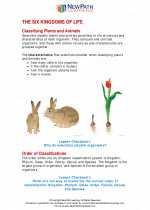
 Activity Lesson
Activity Lesson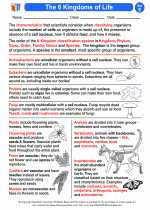
 Worksheet/Answer key
Worksheet/Answer key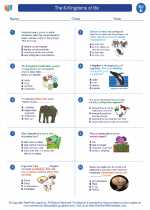
 Worksheet/Answer key
Worksheet/Answer key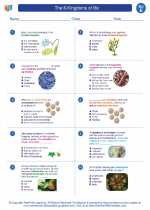
 Worksheet/Answer key
Worksheet/Answer key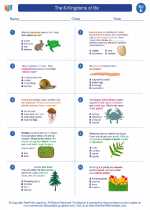
 Worksheet/Answer key
Worksheet/Answer key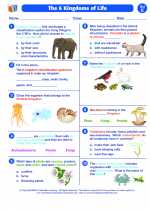
 Vocabulary/Answer key
Vocabulary/Answer key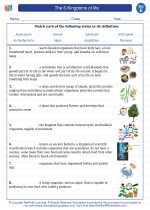
 Vocabulary/Answer key
Vocabulary/Answer key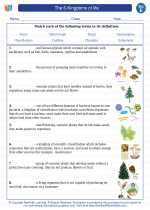
 Vocabulary/Answer key
Vocabulary/Answer key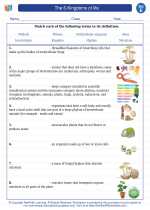
 Vocabulary/Answer key
Vocabulary/Answer key